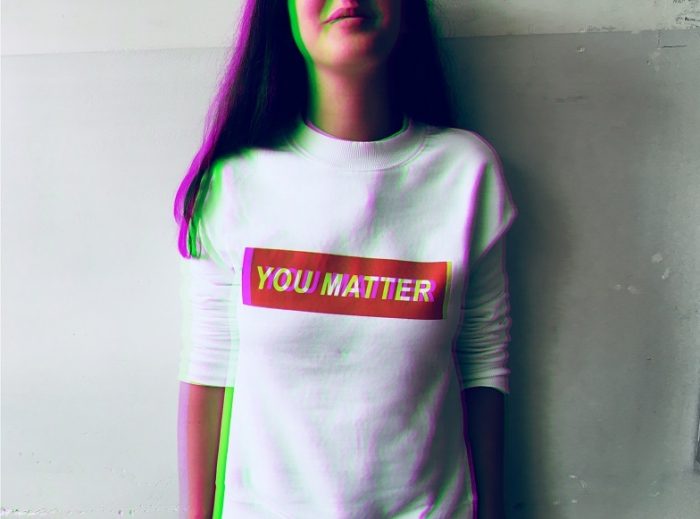“The future is completely open and we are writing it moment to moment.” ~ Pema Chödrön
~
The communications degree I started all those years ago ended abruptly when my workaholic dad suffered a massive heart attack and died.
As an empath and the youngest of four strong-willed siblings, I decided that this was my time to show just how caring and selfless I could be.
So, I packed my pencil, my notepad, and my creative longing in an archive box and returned to my hometown to comfort my once cast-iron mother, spooning in bed with her every night as her arm held me in a vice grip and her toenails scraped the back of my heels while she sobbed tears of disbelief and hopelessness into the nape of my neck.
This was a pattern that would take many different forms but with a recurring theme for the next 30 years of my life. I developed a propensity for relationships that would see me wrangling my way into being of service and emotional support in any way I could at the expense of my own career advancement, happiness, and ultimate fulfillment.
Regardless, selflessness made me a good person didn’t it? If my life purpose was to be devoted to the greater good, then why did I always feel as though I rarely received this kind of love and devotion in return? My pinkie finger was constantly on the backspace bar while I lived in bewilderment about where I was going wrong; there was always something missing from so many of my relationships—the absence of true connection and mutual respect.
After a series of painful family setbacks, I began to study Buddhism and practise meditation to deepen my understanding and acceptance of suffering. It was then that I inadvertently discovered that compassion for myself, first and foremost, was what I’d been missing all these years.
I had never understood that loving yourself isn’t vanity—it’s giving yourself the freedom to be loved, deeper than you’ve ever been loved in your selfless, cloaked-in-armour life.
Compassion is commonly defined as sensitivity to the experience of others’ suffering, coupled with a deep desire to alleviate that suffering. Most of us are great at being compassionate to others, but not to ourselves. We think that self-compassion is indulgent and vulnerability is weak. Think of all the generous, caring people you know who talk themselves down—this may even be you.
It could be said that the motivation for self-compassion arises from love, while the motivation for self-criticism arises from fear. If we truly care about ourselves, we’ll want to do things that help us thrive, like taking on a challenging new project, learning a new skill, or letting go of unhelpful insecurities. And because self-compassion gives us the safety needed to acknowledge our weaknesses, we’ll be in a stronger position to change them for the better.
According to Chögyam Trungpa, making friends with ourselves is at the very core of meditation practise, from beginning to end and all the way through. It is both the basis and the goal of the path. There is a quality of tenderness in meditation practice; it is as though a mental window opens and we catch a glimpse of something trustworthy and good within ourselves. That glimpse awakens a longing within us.
Many of us suffer from self-doubt. We feel that apart from all those roles we play, we are of little value. We feel that deep down we are unworthy, so we engage in a constant game of trying to convince ourselves otherwise.
We are afraid to fail, afraid to disappoint, afraid of criticism, but through meditation practice, we may discover that our failures and flaws are even more powerful teachers than our successes.
In Dharma Art, Chögyam Trungpa writes: “You have a tremendous responsibility: the first is to yourself, to become gentle and genuine; the second is to work for others in that same way. It is very important to realize how powerful all of us are. You could play a tremendous role in developing peace throughout the world.”
There is no limit to making friends with yourself, but there is a chain reaction that takes place each time we accept and open our heart to ourselves in all its flawed glory—we become a bit more open to those around us.
And so, a few months ago, I took a deep breath and finally regained the courage to admit to my family that I had been harbouring a desire for over 30 years and was enrolling in an exciting online writing course, the Elephant Academy. To my surprise, instead of being received with, “It’s a bit late for that now isn’t it?” I was rewarded with my sister’s encouraging words, “Wow, I’m so proud of you for having the courage to better yourself,” and my brother’s quiet admission that he too had a longing to be a writer. I then received the ultimate reward when my children secretly set up and decorated a dedicated space at home for my long-awaited ramblings to take place.
It’s as though a deeper quality of love is out there, just waiting for an opening, and as soon as we extend even a tiny invitation, it comes streaming in like the torrent of words we’ve been hiding in the monologue of our life. Through meditation practice, self-compassion, and sharing our secrets and desires, we are simultaneously taming the mind and opening the heart.
It is so simple and natural: from learning comes knowing, from knowing comes acceptance, and from acceptance comes love.
Elephant Academy welcomes procrastinators and self-doubters like me to take a leap of faith, and in doing so has given me a greater depth of self-knowledge and reignited my lust for written expression.
The joy I get from reading back something I wrote yesterday and realising that it ain’t half bad has given me the self-worth to pursue my dreams. The encouragement of my peers gives me the confidence to look harder, dive deeper, and expose that little voice inside me and make it boom.
It encourages the “I’m not good enough” in my mind to become the “F*ck yeah, I can do this!”—with a fist pump to the sky.
~
“Staying vulnerable is a risk we have to take if we want to experience connection.” ~ Brené Brown
~









Read 0 comments and reply